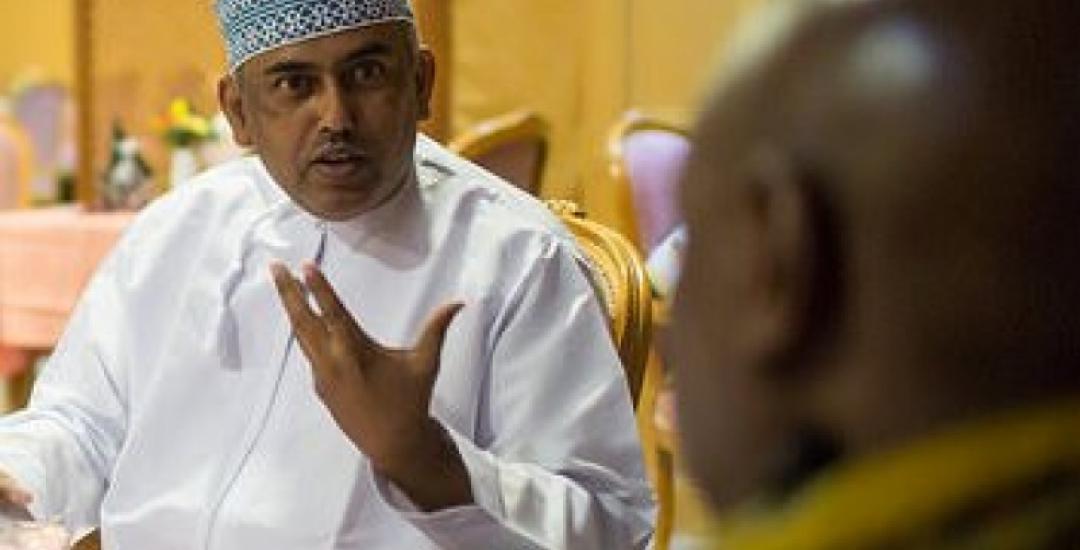
On 25 November 2015, human rights defender Said Ali Said Jadad was arrested once more for "using the internet to disseminate material that would prejudice public order" after his sentence of one year in prison was upheld by the Salalah Court of Appeal on 18 November 2015. Known for his criticism of the Omani authorities' systematic repression of peaceful dissent, Said Jadad has been the victim of numerous acts of reprisals. In view of the facts and of his inability to obtain redress in his country, on 2 December 2015, Alkarama sent an urgent follow up to the United Nations Special Rapporteur on the rights to Freedom of Peaceful Assembly and of Association (SR FPAA), Maina Kiai, in the hope that he can help put an end to the constant harassment suffered by Jadad.
A 49-year-old retired business man and Omani citizen, Said Jadad lives in Salalah, the capital of the southern Omani province of Dhofar, with his wife and six children. A week after the Salalah Court of Appeal upheld his sentence of one year imprisonment and a fine of 1,000 Omani Rials (about 2,600 USD), State Security forces raided his house and arrested him before taking him to the Arzat prison in Salalah. Alkarama holds that the charges brought against him are reprisals for acts falling under his legitimate rights to freedom of opinion and expression, as well as punishment for having met with Maina Kiai during his visit to Oman on 10 September 2014.
This is not the first time that Said Jadad is the victim of reprisals by the authorities. On 14 January 2013, he was arrested by the Special Forces of the Royal Omani Police and detained incommunicado for several weeks, before being released without charges. In October 2014, he saw his passport confiscated and was prevented from travelling to a human rights workshop in Istanbul after meeting Maina Kiai during his visit to Oman. On 10 December 2014, he was arrested again and detained incommunicado, a time during which he was questioned about his activism, his ties with international organisations and his publications on social media, before being released without charges on 22 December 2014. Re-arrested on 21 January 2015, Jadad went on hunger strike to protest these various acts of retaliation against him. He was released three months later thanks to international pressure by NGOs and UN experts who issued a public statement on his case despite a conviction, by the Muscat Court on 8 March 2015, to three years imprisonment for "undermining the State's prestige" and a year for "incitement to crowding" and "disturbing public order," both incriminations systematically used to punish peaceful criticism. At the same time, he was charged with cyber-crimes by the Court of Salalah, which convicted him to one year in prison and a 1,000 Omani Rials fine on 17 March 2015. On 7 April, Jadad was released on bail despite ongoing procedures.
"These series of reprisals must be understood in the context of an omnipresent culture of fear and silence that characterises the Omani society," says Radidja Nemar, Legal Officer for the Gulf Region at Alkarama. "This wall of silence has been imposed on civil society through a systematic use of arbitrary arrests, incommunicado and secret detentions, as well as unfair trials against all dissident voices," she explains. "What is more, this systematic repression has been ongoing and is getting more and more ruthless despite the many requests to stop this practice by UN experts as well as by many countries during Oman's latest UPR review."
Given these facts, Alkarama seized the UN Special Rapporteur on the rights to freedom of peaceful assembly and of association (SR FPAA) asking him to call on the Omani authorities to release Said Jadad and to stop all harassment against him, as well as to put an end to the practice of retaliation against individuals who merely exercise their fundamental freedoms peacefully.
For more information or an interview, please contact the media team at media@alkarama.org (Dir: +41 22 734 1007 Ext: 810)
